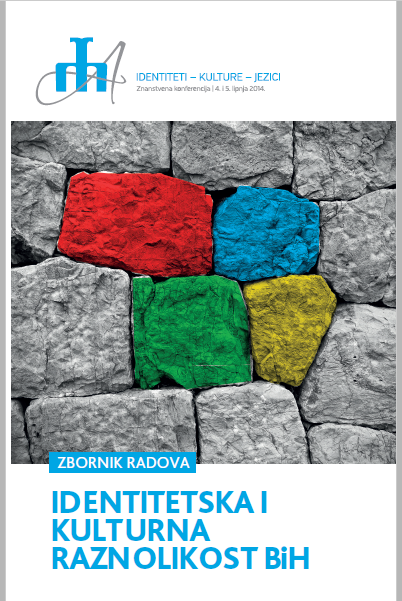ULOGA FRANJEVACA U OBLIKOVANJU IDENTITETA ZAPADNOHERCEGOVAČKIH HRVATA
THE ROLE OF FRANCISCANS IN THE IDENTITY FORMATION OF THE WESTHERZEGOVINIAN CROATS
Author(s): Ivica ŠaracSubject(s): Politics / Political Sciences, Christian Theology and Religion, History, Cultural history, Ethnohistory, Social history, Recent History (1900 till today), Theology and Religion, Politics and religion, 19th Century, Pre-WW I & WW I (1900 -1919)
Published by: Filozofski fakultet Sveučilišta u Mostaru
Keywords: Western Herzegovina; Herzegovinian Franciscans; religious identity;national identity
Summary/Abstract: Western parts of Herzegovina represent in some aspects an atypical place in the BH collective identity whirlpool. The national identity formation processes in West Herzegovina encompass religious, regional and wider national and integrational frames. In all phases it was Franciscans who were the main bearers of these processes. In the second part of the 19th ct. among Herzegovinian Franciscans we have the very first signs of the cultural and political activities, that will in the Ottoman and later in the Austro-Hungarian context have the form of religious, cultural and political organizing on the Croatian national level. The national identity discourse will with time go deeper (through pastoral activities, better traffic connections, organized teaching activities in the villages, through the press, erecting schools etc.). It will grasp Westherzegovinian Catholic villagers already in the time of Austro-Hungarian rule. The changes brought by World War I, especially the advent of the political, party life to the world of villagers as well as more and more intensive political national animosities in the monarchic Yugoslavia, will finish the processes of national defining of all social layers in Western Herzegovina.
Journal: Identiteti - Kulture - Jezici
- Issue Year: 1/2015
- Issue No: 1
- Page Range: 87-115
- Page Count: 29
- Language: Croatian

